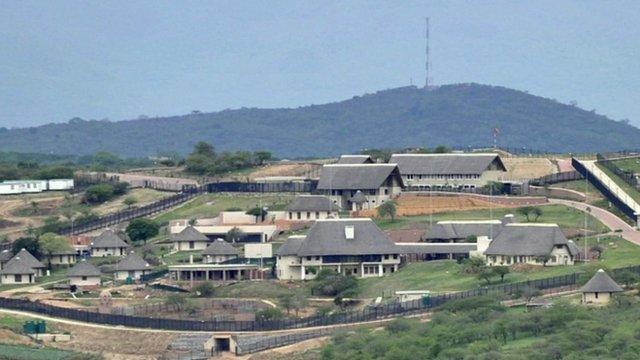South Africa's 'brazen cover-up' of Zuma's home upgrade
- Published
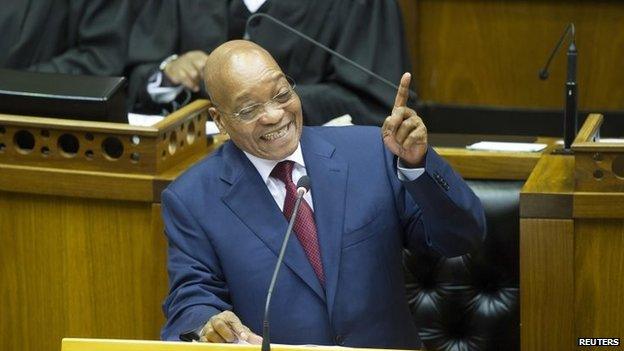
President Jacob Zuma will not have to repay state money spent to upgrade his private home
The offence itself was bad enough - an orgy of overspending by obsequious officials and conniving contractors who managed to spend 246m rand ($21.7m, £14.3m) of public money lavishly upgrading South African President Jacob's Zuma's private homestead, Nkandla.
That is nearly 10 times what taxpayers spent on Nelson Mandela's two homes, and 20 times what it cost to secure Thabo Mbeki's house.
As we now know, Mr Zuma's "essential security upgrades" included a swimming pool, an amphitheatre, a chicken run and a visitors' centre. A fairly humble collection of traditional buildings on a rural hillside has been transformed into something more like a luxury holiday resort.
But as is so often the case in politics, it is the cover up - long, venomous, hair-splitting and sanctimonious - that has been most revealing, and most depressing.
Some of Mr Zuma's closest advisers - those with an eye on image and votes, rather than on real or imaginary security concerns - were urging him from the very beginning to apologise for any errors and to volunteer immediately to pay for any unwarranted expenditure.
The scandal could have ended in a week, and the president could even have emerged with his status enhanced.
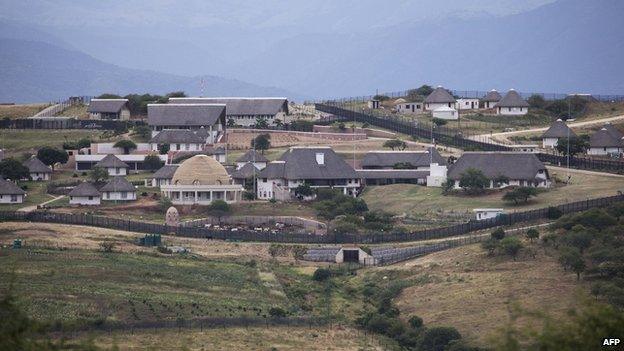
The renovation on Mr Zuma's home include an animal enclosure and a swimming pool
Instead Mr Zuma and his supporters have sought to undermine the credibility of South Africa's public protector - whose exhaustively forensic report recommended that he repay some of the money - and have ridiculed the opposition for seeking to turn Nkandla into a presidency-defining scandal about accountability and corruption.
Now the police minister - a man whose career is, of course, entirely dependent on Mr Zuma's goodwill - has produced his own report, which spells out, in inadvertently comic detail, how conveniently the mosaic-inlayed swimming pool can double as an essential source of water for fighting fires.
The minister's unsurprising conclusion - Mr Zuma should not pay back a penny.
Comic moment
President Zuma did not hide his sense of vindication.
In parliament this week he openly mocked the opposition's attempts to pronounce the word "Nkandla" in a not-so-subtle hint that it was white politicians who were driving the criticism.
It was a confident, boisterous, divisive, and - at least for his supporters - genuinely comic moment.
And there is no doubt that Mr Zuma's jibes will have gone down well with his base.

Spending on presidents' private homes:
PW Botha: $16,100
FW de Klerk: $22,000
Nelson Mandela: $2.9m on two residences
Thabo Mbeki: $1.1m
Jacob Zuma: $23m on rural Nkandla residence
Source: Public protector report / all figures in 2013 financial terms

He is a consummate performer with a salt-of-the-earth appeal that the youthful new opposition leader, and part-time pastor, Mmusi Maimane cannot hope to match.
But South Africa is heading towards local elections next year and one has to wonder what impact Nkandla will have on wavering voters and on the governing African National Congress's majorities - under threat in some key urban municipalities.
If this were a constituency-based parliamentary democracy you could imagine a long queue of backbenchers lining up to beg Mr Zuma to handle Nkandla differently, since it was damaging their support among local voters.
Instead, politics here leans more towards a patronage system, with Mr Zuma at the tip of the pyramid. He is a proud, stubborn man, with some acute political skills.
But his career has been defined - you could argue - by two things: His experiences as an underground intelligence operator in the fight against apartheid; and his years in a newly democratic environment where the ANC has never seriously had to worry about losing power.
The Nkandla issue may fade into the background now. For a final judgment, we'll have to wait until next year's elections.
- Published28 May 2015
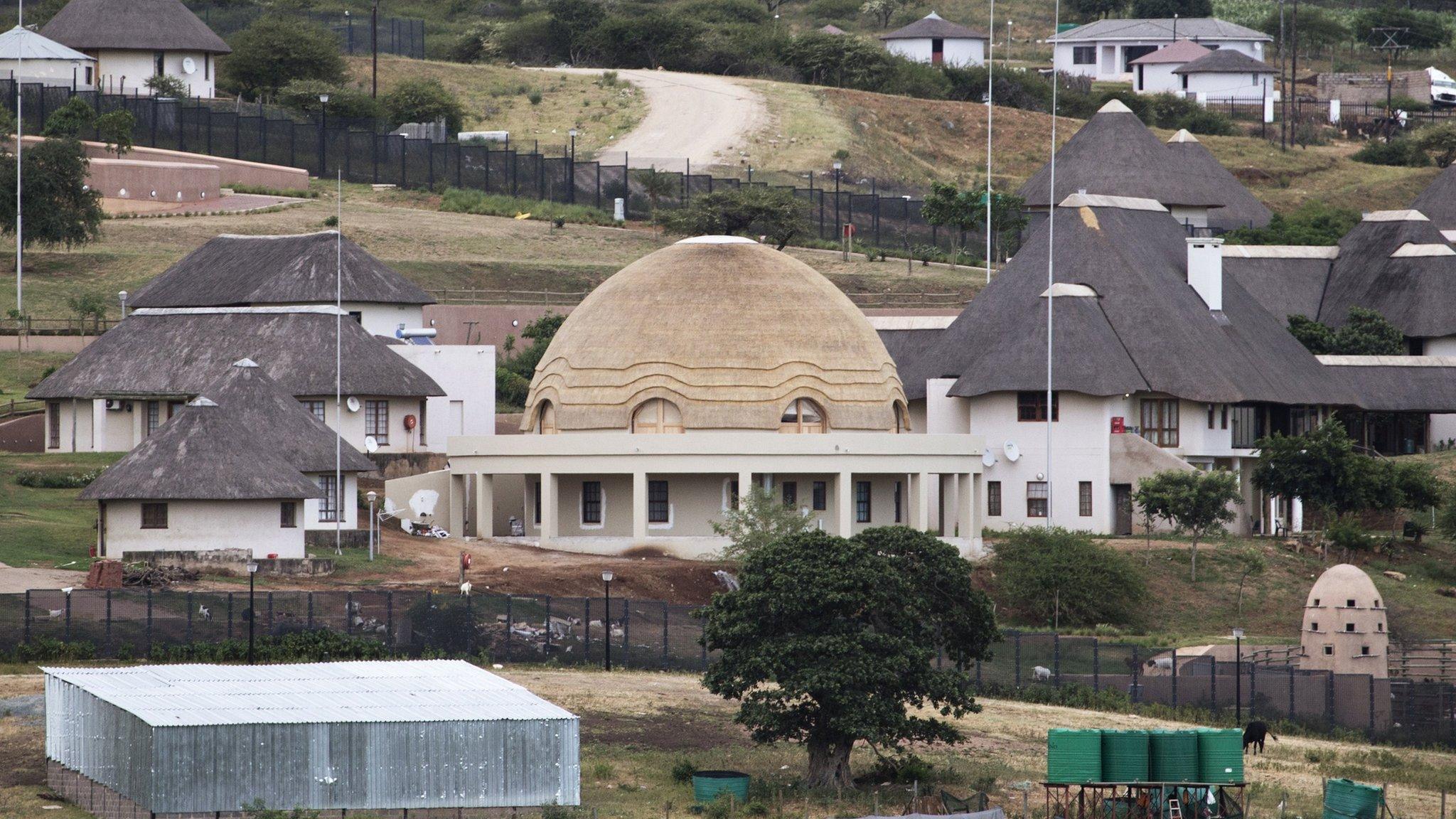
- Published2 April 2014
- Published19 March 2014
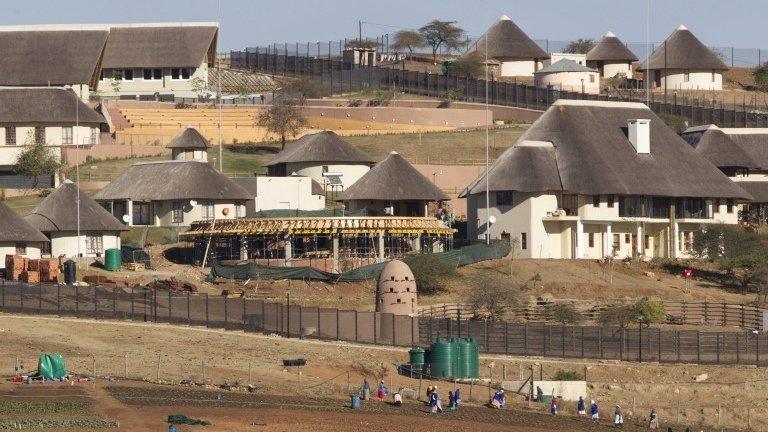
- Published20 March 2014
